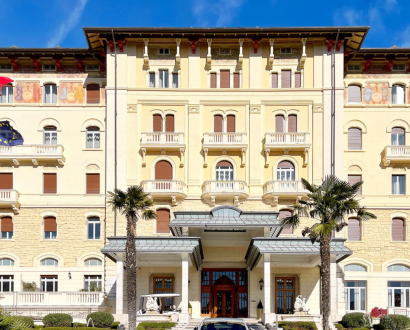Work-related stress illnesses have been on the rise for years, which is no surprise considering many of us turn up to work already stressed. We live in an always-on world with layers of distraction on top of layers of responsibility and a side helping of bills to pay.
Being constantly available and switched on to work can be draining, so it’s little wonder so many of us are stressed before we’ve even started the day.
Enjoy life more
Striking a balance can seem difficult. So many of us talk of wishing for a better work-life balance and preach to anyone who will listen that we need to work less and appreciate life more. Would we appreciate life with more time though or are we just not tuned in to some of the more esoteric pleasures we say we’d enjoy if only we had more time.
More than a decade ago, Joshua Bell, the world-famous violinist, expertly performed six Bach pieces on a violin worth over 3.5 million dollars at a Metro station in Washington D.C.
No-one recognised him and people barely stopped to pay attention to and appreciate some of the world’s finest music played by a true virtuoso. It’s true that rush hour on a busy Metro platform is not the ideal place to appreciate the finer things in life but, perhaps, the salient point is that no-one recognised ‘life’ when they were so absorbed in getting to work.
What if work is life?
So at what point do work and life merge into one? In the modern world does the old saying ‘work to live, don’t live to work’ seem less profound because for many work is life? What if work-life balance is a myth because work is life?
Career-minded people, those driven by their professional achievements, would probably say that their work is their life. Scientists and inventors often refer to their research, discoveries and inventions as their ‘life’s work’. At certain stages of life, working hard is genuinely living it – especially for people with an entrepreneurial mind set.
Work-life balance is really about fitting activities and responsibilities that don’t merge or intersect well around each other. For example, it’s not practical to look after your children at work (unless you’re a teacher or work in a pre-school)
However, exercise, going to the gym and generally keeping fit can easily fit into a work schedule. Many a deal has been brokered over a tennis net or on a squash court. Clients can be met over dinner – board meetings and collaborations can be conducted with take out or in a restaurant.
You balance
Some people will be at a stage in their life where responsibilities extraneous to work will intersect with work and it becomes all-encompassing but that doesn’t mean life is any less fulfilling. Those people just have different metrics by which they measure their happiness, stress levels and balance.
Trying to find work-life balance in itself can be quite stressful. Trying to fit it all in; the job, the kids, the parents, community work, relaxation, me-time, exercise, relationships and all the other little things is overwhelming. In trying to conform to the expectations of what a healthy work-life balance is supposed to be is tiring.
Instead, we should be looking at a ‘you balance’. Being dedicated to the job and working hard is not a bad thing. Blocking out ‘life’ in favour of amassing your fortune and hunting down deals shouldn’t be frowned upon if that’s what you enjoy.
The life part of work-life balance is about doing things that we enjoy, things that relax and fulfil us. At the end of the day you have to weigh up what is important to you and those are the things you try to balance. If that just so happens to be work then have at it.







